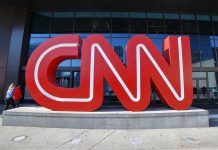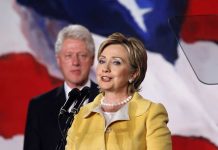
One accusation—true or not—can unravel the most disciplined campaign, and Mikie Sherrill’s race for New Jersey governor now hangs in the balance, gripped by the relentless echo of insider trading allegations that have derailed careers before hers.
Story Highlights
- Insider trading allegations against Sherrill have become the defining issue of the 2025 NJ gubernatorial race.
- Her detailed financial disclosures, meant to clear her name, have failed to stem the political damage.
- Republican opponent Ciattarelli and super PACs are leveraging public distrust of political elites for maximum impact.
- The election’s outcome could shift based on how undecided voters interpret both the allegations and Sherrill’s transparency.
Why Stock Trading Scandals Haunt Politicians—and Stick
Accusations of insider trading wield a unique power in American politics, not only because they conjure lurid images of greed but because they tap into a bone-deep cynicism about political elites. Mikie Sherrill, a decorated Navy pilot turned Congresswoman, is the latest to face this political guillotine. Her stellar résumé could not shield her from the charge—amplified by attack ads and debate soundbites—that she used her privileged perch on the House Armed Services Committee to enrich her family through deftly timed defense stock trades. The mere allegation, easy to understand and hard to disprove in the court of public opinion, has become the campaign’s gravitational center, threatening to upend what should have been a safe Democratic win.
Sherrill’s experience is not unique; American voters have watched a parade of lawmakers from both parties squirm under similar scrutiny. The 2012 STOCK Act was supposed to end such scandals, but Congress’s own disclosure rules—vague value ranges, delayed reporting—leave just enough ambiguity for opponents to paint their rivals as crooks without ever proving actual wrongdoing. In Sherrill’s case, these ambiguities are political dynamite: her opponents cast the widest possible net, citing the largest possible numbers from her required disclosures, while watchdogs and media outlets struggle to explain the nuances. The result is a narrative that sticks, regardless of the facts.
Campaign Transparency as a Double-Edged Sword
In a bold countermove, Sherrill published detailed financial statements far exceeding what the law demands. These documents reveal family wealth driven by her husband’s financial sector compensation, not secret congressional trades. Ethics experts and independent media confirm there is no evidence of STOCK Act violations or suspicious gains. Yet, in the sensory overload of modern campaigns, such transparency can be weaponized against a candidate as easily as secrecy. Voters, bombarded by attack ads and viral debate clips, often see complexity as a smokescreen—if you have nothing to hide, why the endless spreadsheets? Sherrill’s disclosures, meant as a shield, become part of the controversy, fueling instead of silencing public suspicion.
Republican Jack Ciattarelli’s campaign and its allied super PAC, Change New Jersey, have seized this opening. Their messaging is relentless: if politicians are getting richer, they must be gaming the system. Historical precedent in New Jersey lends their strategy weight; the state’s 2021 gubernatorial race, once thought unwinnable for Republicans, tightened dramatically after late-breaking negative stories. In a state where swing voters can—and have—flipped the script, even the whiff of impropriety matters more than any policy debate.
Debate Drama, Media Echoes, and the Weaponization of Doubt
The campaign’s defining moments have played out on television and social media, where nuance rarely survives. A viral clip from “The Breakfast Club” interview shows Sherrill defending $7 million in family trades; her answers, factual but lawyerly, fuel memes and doubts alike. The first gubernatorial debate in September 2025 devolved into a cross-examination over her bank statements. Each exchange is sliced and repackaged for voters who have little patience for the finer points of ethics law. The more Sherrill explains, the more entrenched the narrative becomes that she has something to hide.
Experts warn that such controversies, even if meritless, can be fatal in a tight race. Political scientists point to New Jersey’s history of late polling swings when scandal dominates headlines. Nationally, the episode feeds an ongoing debate about whether any member of Congress should be allowed to trade stocks—a debate that, ironically, Sherrill herself tried to sidestep by moving her investments to broad-based funds years ago. In the heat of a campaign, such context is easily drowned out by a simple, damaging accusation.
How This Scandal Could Rewrite the Rules—Again
Short term, the damage is clear: Sherrill’s polling lead has narrowed, Republican turnout is energized, and Democratic enthusiasm seems to have dulled. The controversy’s longer shadow may fall on future elections and policy. Calls for a total ban on congressional stock trading, already simmering, are likely to intensify. Meanwhile, Sherrill’s ordeal may reset expectations for candidate transparency—not as a virtue, but as a new baseline for political survival. The ripple effect could extend far beyond New Jersey, as campaigns across the country study whether the weaponization of doubt is now the surest path to victory or its own poison pill.
The ultimate irony? While independent reviews clear Sherrill of wrongdoing, the scandal’s persistence exposes a deeper truth: In the age of weaponized suspicion, the appearance of impropriety can be more politically lethal than the act itself. Voters, left to sort through conflicting headlines and campaign attacks, will decide whether transparency is enough—or whether the shadow of scandal is now an unshakeable part of American politics.
Sources:
New Jersey Globe (financial disclosures)
Hungarian Conservative (political analysis)


















